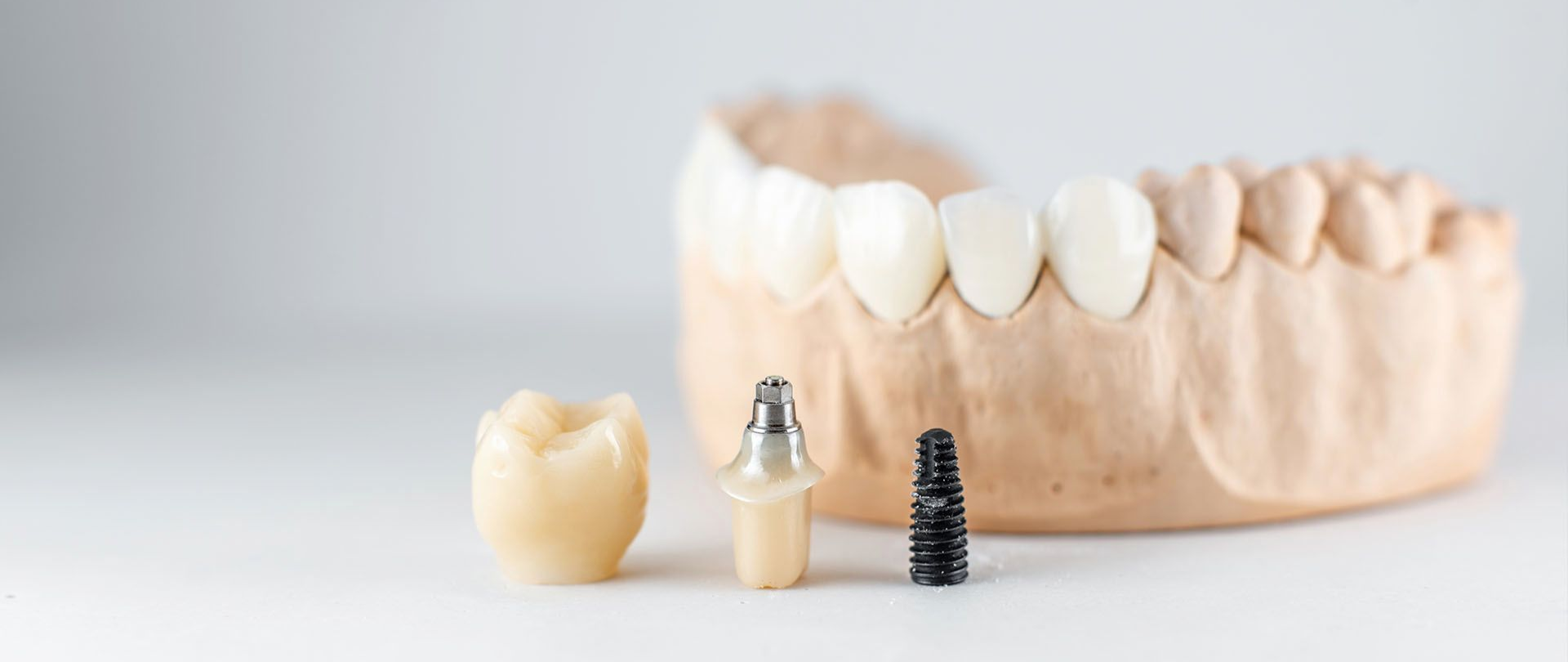Can You Get Dental Implants If You Have No Teeth? Here’s What You Need to Know
Losing all your teeth can feel overwhelming. It affects how you eat, speak, and even how your face looks. But here's the good news: yes, you can get dental implants even if you have no teeth.
At Innate Dental Solutions, we specialize in full-mouth dental implant solutions. Thanks to our years of experience working with edentulous (toothless) patients, we are qualified to provide reliable, medically accurate information about these advanced treatments.
Who Can Get Dental Implants If You Have No Teeth?
If you’re completely toothless—what’s called being edentulous—you’re not alone. And you're not out of options. Most people without any teeth can still qualify for dental implants.
However, one key factor is your jawbone health. After tooth loss, the jawbone begins to shrink. This is called bone resorption, and it can affect whether implants can be placed right away.
But don’t worry—bone grafting can rebuild lost bone. It's a common step for patients with long-term toothlessness.

How the Implant Evaluation Works
Before you begin, your dentist will perform a full evaluation to check your oral health and bone density. This includes:
- A
clinical exam
- X-rays or CT scans
- A review of your
medical history
If your jawbone isn’t thick enough, you may need a bone graft. This involves adding bone (from your body or a donor source) to the jaw to support the implant. Depending on the case, bone grafting may be done before or during implant placement.
This evaluation ensures your mouth is ready for implants to heal and last long-term.
Treatment Pathways: From No Teeth to a Restored Smile
If you have no teeth, there are several implant-supported options to restore your smile:
1. Implant-Supported Overdentures
These snap onto a few strategically placed implants. They're stable, removable, and more secure than regular dentures.
2. All-on-4 or All-on-X
This is a full-arch restoration where just 4–6 implants support a full row of teeth. It’s a great option for patients who want fixed, non-removable teeth.
3. Zygomatic Implants
For patients with severe upper jaw bone loss, these longer implants anchor into the cheekbone (zygoma). They can eliminate the need for bone grafts altogether.
Each of these solutions provides a natural look and feel, so you can chew, talk, and smile with confidence.
The Implant Process Timeline
Here’s what to expect during the dental implant journey:
- Implant Placement Surgery
Titanium posts (called implant fixtures) are placed into your jaw. - Healing and Osseointegration
Over 3–6 months, your bone grows around the implants. This process is called osseointegration, and it's critical for stability. - Abutment and Prosthesis Placement
Once healed, small connectors (abutments) are attached, followed by your new teeth (dental prosthesis).
Immediate vs. Delayed Loading
In some cases, temporary teeth can be placed the same day as your surgery (immediate loading). Other times, healing must finish first (delayed loading). Your dentist will decide based on your specific needs.
Benefits of Implant-Supported Solutions
Dental implants do more than just replace teeth. They offer life-changing benefits:
- Improved chewing and speaking
- Stability that dentures can’t match
- Bone preservation, preventing facial sagging
- Natural appearance and feel
- Durability—implants can last 20+ years with good care
Compared to traditional dentures, implant-supported solutions are more comfortable, reliable, and longer-lasting.
Potential Considerations & Alternatives
Of course, implants aren’t for everyone. Here are a few things to keep in mind:
- Longer treatment times (especially if bone grafting is needed)
- Higher initial cost
- Health factors, like uncontrolled diabetes or smoking, may delay or prevent treatment
If implants aren’t a fit for you, traditional dentures or bridges may still be good alternatives. But for many edentulous patients, implants offer the best long-term outcome.
Maintaining Your New Smile
To keep your implants healthy:
- Brush and floss daily
- Use a
water flosser or special implant-cleaning tools
- Avoid smoking
- Visit your dentist
every 6 months
With proper care, implant-supported restorations can last decades—and sometimes even a lifetime.
Final Thoughts: It’s Never Too Late for a New Smile
If you’ve been living without teeth, know that you’re not out of options. Dental implants are a proven, life-changing solution—even for those with no teeth at all.
At Innate Dental Solutions, we’ve helped countless patients move from hopelessness to happy, healthy smiles. The first step is a simple consultation.
Take back your smile. Take back your life.
About Innate Dental Solutions
Our team is trained and qualified to provide information and care related to full-mouth dental implants. With years of experience treating edentulous patients, we follow evidence-based practices and work closely with oral surgeons, prosthodontists, and implantologists.




